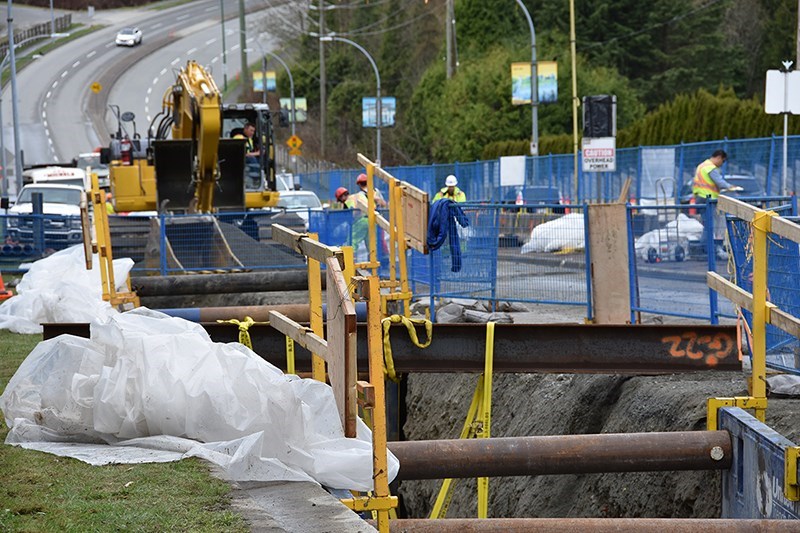Fortis can keep its old gas pipeline under Como Lake Avenue.
Last Friday (Sept. 17), the City of Coquitlam lost its appeal on an order that permitted the gas company to leave its abandoned pipe under the busy arterial road.
The municipality had appealed the decision made by the BC Utilities Commission (BCUC) Reconsideration Panel that upheld the commission’s order; the city claimed the commission lacked the jurisdiction to allow the abandoned equipment to stay on city land.
But in a ruling by the BC Court of Appeal, the justices concluded that the commission and the panel didn’t err, as the Gas Utility Act doesn’t lay out all of the rights and privileges that a gas utility can exercise.
The court decision came after the BCUC in 2015 allowed Fortis to build its Lower Mainland intermediate pressure system upgrade projects, which included a new 30-inch pipe along Como Lake Avenue to replace a 20-inch pipe that was installed in 1955.
At first, the city refused the pipe replacement until Fortis agreed to two terms: repave Como Lake Avenue after the construction ended and remove the old pipe. Both conditions would have cost the company about $10.5 million, according to court papers.
In 2018, BCUC gave the OK for Fortis to proceed with the Coquitlam portion of its project and, the next year, BCUC authorized Fortis to abandon the old pipe that was no longer in use; however, it also required Fortis to remove any part of the old pipe that interfered with city infrastructure.
In addition, the commission ordered that the removal costs be shared equally by Fortis and the city, and it rejected Coquitlam’s request for Fortis to repave Como Lake Avenue.
In response, Coquitlam filed a bid for reconsideration that claimed BCUC erred in law and it argued that Coquitlam shouldn’t have to share the removal expenses. The reconsideration panel dismissed Coquitlam’s first application but it upheld the city’s objection to the cost sharing.
In court, Coquitlam stated that the commission’s order gave Fortis property rights “beyond those it is authorized by statue to hold” by essentially confiscating city property, and by giving the company “a right to leave equipment in perpetuity on land vested in the municipality.”
Still, the appeal court justices sided with Fortis, ruling that the BCUC order wasn’t confiscatory. “By the order, the commission grants a utility the right to use property,” they wrote in their judgment. “Neither the Gas Utility Act nor the Utilities Commission Act speak of a proprietary interest in the affected lands.”
“Further, the use that may be made in this case will not impair Coquitlam’s use of municipal property,” they added. “While some sections of the pipeline may remain permanently in place, that will only occur if those sections do not interfere with municipal works and Fortis will continue to be responsible for the decommissioned line, and for the removal of sections that impair or restrict Coquitlam’s use of its property.”
In an emailed statement, Jaime Boan, Coquitlam's general manager of engineering and public works, told the Tri-City News.
"Although the outcome of the Court of Appeal was not a jurisdiction victory for municipalities, the process has led to some success for Coquitlam."
"The city successfully challenged BC Utility Commission’s (BCUC) initial decision, which transferred legal and financial responsibility for Fortis’s decommissioned pipes to the city," Boan added.
"We were also successful in changing BCUC’s next decision that the cost of removing the old pipe needed to be shared by Fortis and Coquitlam 50/50. That means that, now, the old pipe remains Fortis’s risk and responsibility and any portions Coquitlam requires be removed for municipal purposes must be removed by Fortis at its expense.
"We remain committed to working with Fortis to minimize the impacts of its project on Coquitlam residents, now and in the future."





